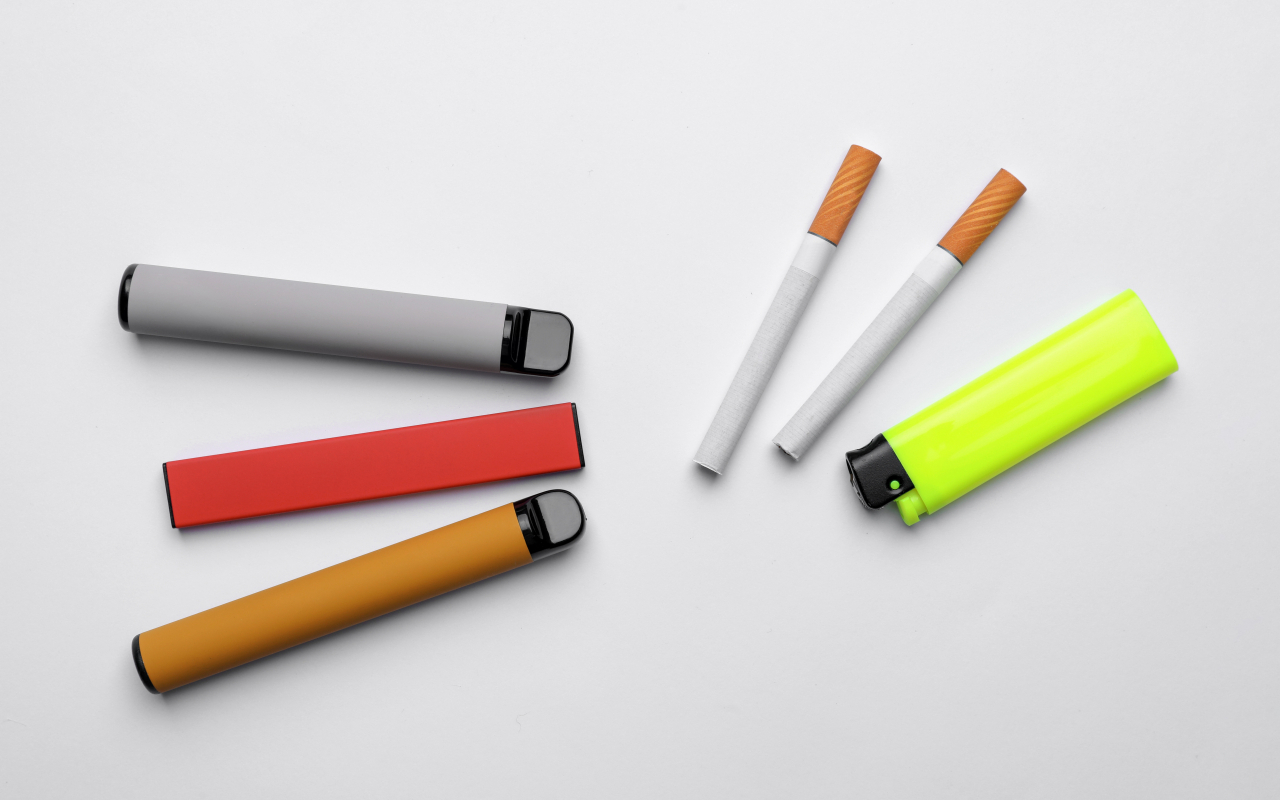S. Korea backs down on possible tax hike for heated tobacco products
Sources say ministry may have felt pressure from public backlash, especially ahead of general election next year
By Shim Woo-hyunPublished : April 19, 2023 - 16:57

The South Korean government on Wednesday backed down on a possible tax raise for heated tobacco products, just two days after the nation’s finance minister hinted at the possibility of a parliamentary hearing.
“(The government) is not currently considering raising the tobacco tax at the moment,” the Finance Ministry said in a statement after the minister’s comments were met with immediate public backlash.
A possible tax hike for heat-not-burn cigarettes first emerged when the ruling party argued that a similar tax rate should be imposed on non-combusted tobacco products during a meeting held at the National Assembly on Monday.
Rep. Bae June-young of the People Power Party said non-combusted cigarettes are "just as harmful as regular cigarettes" and should be avoided for the sake of public health.
“I would like to ask about the government’s take on raising the tax imposed on non-combusted cigarettes,” Bae added.
In response to Bae's inquiry, Deputy Prime Minister and Minister of Economy and Finance Choo Kyung-ho said non-combusted cigarettes "should be treated similarly to regular cigarettes.”
“There were some disagreements about the effects of non-combusted cigarettes. But the Health Ministry now also speaks of their harmful effects,” Choo said.
In South Korea, regular cigarettes are taxed more as they are considered to be more harmful than non-combusted cigarettes.
A total of 3,323 won ($2.52) in tax is imposed per cigarette pack, which includes a 1,007 won tobacco excise tax, 443 won education tax, 594 won consumption tax, 409 won value added tax, 841 won health promotion fee, 24.4 won waste charge and 5 won that goes toward supporting tobacco farmers.
On the other hand, 3,004 won in tax is imposed on non-combusted cigarettes, which is 90.4 percent of the taxes imposed on regular tobacco products.
Consumer prices of both regular tobacco products and non-combusted cigarettes are at around 4,500 won for a pack.
The government's latest move has drawn criticism from the public for seeking to boost falling revenue by imposing more taxes.
Tax revenue in January and February this year came to 54.2 trillion won, a 15.7 trillion won slide from the same two-month period a year ago, according to the Finance Ministry.
Tax revenue from tobacco products also has gone down over the past years.
In 2022, the number of tobacco products sold in South Korea reached 3.63 billion, up 1.1 percent from 3.59 billion packs in 2020. However, the total amount of taxes imposed on all tobacco products dropped to 11.8 trillion won in 2022 from 12 trillion won in 2020.
It was mainly because less regular tobacco products were sold, while more non-combusted cigarettes were sold and replaced traditional cigarettes with a higher tax rate.
In 2022, a total of 540 million packs of non-combusted cigarettes were sold, up from 380 million packs in 2020. But, the number of regular cigarette packs sold in 2022 reached 3.09 billion, down from 3.2 billion packs in 2020.
A local association of smokers on Wednesday raised concerns that a tax increase in non-combusted cigarettes will lead to additional increases in overall tobacco taxes.
The association also criticized the ruling party for trying "not to offend corporations but thinking little of common people.”
“It is nonsensical to lower corporate tax by 1 percent on the one hand and raise (tobacco tax) on the other,” the association said in a statement.
In December last year, the National Assembly agreed on a 1 percentage point drop in corporate taxes.
"The government seemed to have changed its stance following severe backlash from smokers,” an industry source said on condition of anonymity.
Industry watchers noted that the government is unlikely to raise taxes on the hot-selling cigarette products especially ahead of a general election in April next year.







![[Graphic News] More Koreans say they plan long-distance trips this year](http://res.heraldm.com/phpwas/restmb_idxmake.php?idx=644&simg=/content/image/2024/04/17/20240417050828_0.gif&u=)
![[KH Explains] Hyundai's full hybrid edge to pay off amid slow transition to pure EVs](http://res.heraldm.com/phpwas/restmb_idxmake.php?idx=644&simg=/content/image/2024/04/18/20240418050645_0.jpg&u=20240419100350)






![[From the Scene] Monks, Buddhists hail return of remains of Buddhas](http://res.heraldm.com/phpwas/restmb_idxmake.php?idx=652&simg=/content/image/2024/04/19/20240419050617_0.jpg&u=20240419175937)

![[KH Explains] Hyundai's full hybrid edge to pay off amid slow transition to pure EVs](http://res.heraldm.com/phpwas/restmb_idxmake.php?idx=652&simg=/content/image/2024/04/18/20240418050645_0.jpg&u=20240419100350)

![[Today’s K-pop] Illit drops debut single remix](http://res.heraldm.com/phpwas/restmb_idxmake.php?idx=642&simg=/content/image/2024/04/19/20240419050612_0.jpg&u=)